Last week I received my diploma from Western Governors University for my BSN, finally completing this path that I started just shy of seven years ago. (That sounds crazy, but I looked it up and I took my very first pre-req in the summer of 2011.)
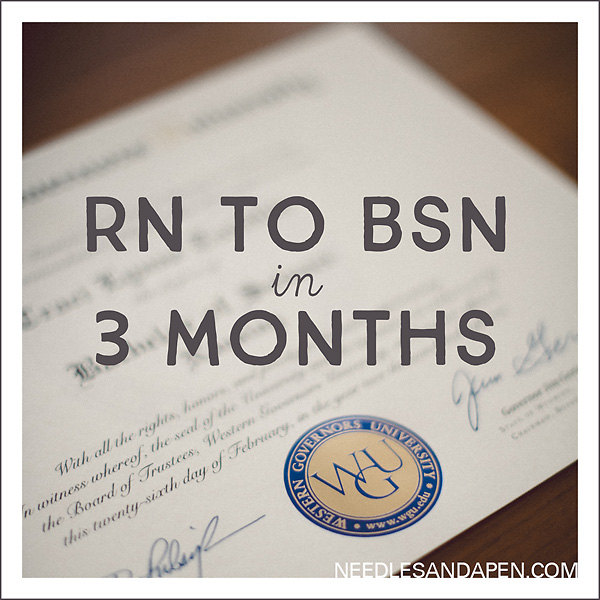
When I proposed going back to school to become a nurse to Nic, I proposed a slow and steady plan that would have me not even starting nursing school proper until Ellie was in kindergarten. Fast forward six years and the ‘slow and steady to RN’ plan was now an ‘all out sprint to the finish let’s get this done, RN to BSN program completed in one single term’ plan. Started slow and steady, ended fast and furious!
This latest program was by far the easiest and least painful part of my nursing school experience. I started the RN to BSN program on the 1st of December 2017, and my last assignment was graded and I was officially done with the program on February 23rd 2018. For those counting, that means I completed the program in less than three months! I took two weeks off at Christmas and another week off when a family member was hospitalized. Which means this really took just two months! And even better, I got my BSN without a single group project or forum post! With my hospital’s tuition reimbursement of $3000/year, the degree cost me $800 (books included!). Compared to the emotionally draining and logistically exhausting Associates Degree, this was particularly delightful.
For those poking around the internet looking for tips on completing the Western Governors University RN to BSN program in one term or those deciding which RN to BSN program to go with, I’ve decided to add my own experience to the mix since it was information shared by others that allowed me to realize that this was possible. So if you are hoping to be a fellow “One and Done”-er, read on–hopefully I can give back a little this way! 😀
While in my second semester of nursing school and loathing the dual enrollment RN to BSN program I was enrolled in, I discovered that it would be possible to finish the RN to BSN program in one term at WGU when I read this blog post from Momma Maven.
Realizing that I could earn my BSN in 6 months for $3800 instead of the 18 month $20k slog at my local university, I asked the director of the units where I was hoping to work if she cared where my BSN came from. The answer was a big fat no. I immediately disenrolled from the dual enrollment program with a plan to wait to start the RN to BSN program until I was eligible for WGU (unlike dual enrollment programs, you cannot enroll at WGU until you have your RN license in hand). My plan was to start immediately after graduation and finish in one term, putting my BSN graduation in December 2017 (which would have been my graduating date from the dual enrollment program).
After starting in my new RN position, though, I found being a new nurse to be more emotionally taxing than I had expected, and decided to delay my start at WGU for a few months. My date was set because of some tuition reimbursement details, and I started the program on December 1st. December would not be my first choice of a starting month due to the holidays, but there were some tuition reimbursement details that made December an important start date. Thanks for the flexibility of the program I was able to take the second half of December off for travel and holiday festivities without any problem. With my first degree (BA in English) and the coursework I had taken when I planned to go to an accelerated BSN program before learning that Associates Degrees are an option for becoming a nurse, I had enough transfer credits to only need 33 credits at WGU.
One of the best parts of WGU is that it is self-paced. If you want to take two weeks off for Christmas, you can. If you want to knock out three classes in two days, you can do that, too. When a family emergency requiredus to travel out of town, I told my mom how grateful I was to be enrolled at WGU. I could take the week off unexpectedly and unceremoniously. There were no deadlines I had to wrestle with, no forum posts or replies to worry about– I just got to press “pause” on the schoolwork and not worry about it for a week. This alone is priceless and a great reason to consider WGU!
With all of the good, though, comes some frustrations and confusion. Here are a couple of things I found confusing early on that I would have loved to have a guide for:
- WGU terminology.
- SM is your ‘Student Mentor.’ They are your guidance counselor and are in charge of your progress in the program—they will approve you to open tests, open classes, determine the order of your courses, and call you weekly to check on your progress. Weekly. When I first learned that I would have to talk to someone WEEKLY I balked. “Umm…I am a grownup who sets and achieves her own goals all the time,” my insulted whiny baby self said. But then I quickly noticed how very productive I was the night before a phone call with my mentor and changed my tune! These phone calls are easy and fast. Just five minute or less these are little check-ins on what you’ve done and what you want to do next. Don’t sweat them.
- CM is your ‘Course Mentor.’ To be honest I only ever reached out to a course mentor once and they didn’t even answer my question. I discovered that most people also had negative experiences with the course mentors. These are supposed to be the subject experts on the various classes (similar to a professor)…but if you have a question about an assignment you are probably going to get a faster and more straight forward answer from a Facebook support group.
- OAs and PAs and PAs and OAs. This is probably the worst of the acronyms because PA either means Performance Assessment, referring to a paper or video or other non-test-based graded task, or Pre-Assessment, meaning the pretest before you can open the OA (Objective Assessment).
- Is the OA like the PA? On every Facebook support group you will find people asking if the OAs and PAs are similar. Constantly. And here is the thing: THE ANSWER IS YES. Ignore the crazies who say they are not. There are constant horror stories about people who did well on the PA but bombed the OA. I strongly believe that if that was the case, they either had nerves get the better of them, or they didn’t take the time to read their PA report and quickly study up on the sections they did poorly on.
- The number of due items listed for a course versus the actual number of tasks you will complete. For every class you can see little circles next to the course with the number of PAs, OAs, or both required in the course. So you might see two little PA bubbles. “Great!” you think. “Two papers!” Only one of the PAs may actually be composed of three “tasks” which are three papers. In another class one PA really is one paper. There seems to be zero rhyme or reason to this business. Just role with it and every time it starts to make you twitch repeat to yourself “at least it’s not a group project, at least it’s not a group project, at least it’s not a group project.”
The worst part of WGU is the inconsistency. Not only is WGU constantly changing things, but your experience is largely controlled by your Student Mentor, and each one varies in their enforcement and understanding of “the rules.” For example, many people strongly recommend opening the fieldwork course (C229) as soon as humanly possible and keeping that open so that you can earning your fieldwork hours while you work on other courses. My Student Mentor (while lovely and encouraging and a great student mentor) wouldn’t let me open C229 until I had completed all but it and one other class, and I was only allowed to have one class open at a time (with the exception of the initial webinar based class).
My recommendation is to emotionally prepare to be extremely flexible, work with the things you can’t change, and work around the things you’re able to work around. For example, though I was unable to open that final class while earning my field hours, I was able to “preview” the assignments for the final class. This allowed me to write parts of those final two assignments before I officially opened the course.
WGU makes frequent changes to the classes. Some are in your favor, and some are against you. For example on January 1st they rolled out a change increasing the required fieldwork hours for community health from 45 to 65. At the same time, the dreaded health assessment requirements were scaled back from something like 80 to something like 60. You win some, you lose some. One of Momma Maven’s tips is to not freak out about the changes. This is very good advice. Don’t stress it—you can still finish in plenty of time to only pay one term of tuition.
That said, keeping up to date on rumors about course changes through facebook support groups can help you make the most of the situation. The week of Christmas I learned about the fieldwork requirement change from the facebook support groups (they were positively blowing up with posts about it). Rumor had it that if you could enroll in (some said just enroll, some said complete) the course that is tied to the fieldwork course (C228) before January 1st, you would be grandfathered into the old hour requirements. This was the only issue I pushed back against with my Student Mentor when she initially told me no. I pushed back when she said that I couldn’t enroll in the class (gently and respectfully) since I knew for a fact that others were getting into the old version of C228, and she acquiesced. Facebook to the rescue. I guess Facebook owed me 20 hours after all the hours it has mindlessly sucked from my life. 😛
The fast finisher method: The ‘one and done’ method for finishing WGU in one term focuses on the fact that this is a competency based program, not a traditional program. Therefore the focus is on completing the competencies versus going through all of the coursework in the class in a linear way. With each class the ‘one and done’ers start with the tasks and then go back to read material that you need to complete the paper or test. (The exception to this biochemistry, where you’ll actually want to watch the cohort videos before attempting the pre-test.)
Facebook support groups (in particular the WGU BSN and MSN Balls to the Wall Group) were invaluable resources for up-to-date tips on the courses [update June 2018 – my favorite support group is unfortunately closed currently to new members]. With the courses changing so quickly, specific tips that are helpful now may not be applicable in 6 months. Keeping that in mind, here are my general thoughts and tips about each class:
C820 Professional Leadership and Communication for Healthcare – This is the only class you actually have firm timelines for, as you have to attend 8 two hour webinars. I signed up for one of the sessions that allowed you to complete two sessions per day with the four days close together instead of having the 8 sessions spread out over several weeks A little bit fluffy, this class is your chance to ‘meet’ other WGU students. There are rules about how you attend these classes (professional attire, not allowed to call in from your bed [which is a disappointment for those of us attending the classes between night shifts!]), and a lot of silly little homework tasks, but overall less terrible than I expected. This took me a week to complete based on the way my classes were scheduled.
C785 Biochemistry – This was my favorite class. I had taken a general college chemistry course four-ish years ago that provided a good background. I watched the five prerecorded cohort videos, took the quiz on each module that was in the Course Material, took the pre-assessment, brushed up on the questions I missed, and then took the test. Took 5 days and I scored an “excellent” on the exam. One of my best tips for this class (and any WGU class where you are watching a video) is to turn up the speed to 1.5 or 1.75. In the lower right of the window you’ll see a 1x—click on that and you can speed up or slow down the video. In high school my history teacher told me that if I was reading the same paragraph again and again and not retaining it, I should read FASTER, not slower. In speeding up the delivery my brain would be forced to focus on the content and big ideas versus getting hung on up on the language. I think this is true of the biochemistry videos, too. The course mentors speak slowly in them, but this ends up giving you too much time to become distracted as they talk. Speeding up the videos may actually make them easier to understand.
C475 Care of the Older Adult – This is a class you can complete in a day. Take the pretest cold, check on anything you didn’t do well on (most likely the Medicare/Medicaid stuff), and take the test. The other test you take on an external site was also very easy.
C361 Evidence Based Practice and Applied Nursing Research – This was a hard one to slog through, in large part because it was my first paper class and I wasn’t sure what to expect from WGU paper assignments. The truth is that at WGU you don’t write actual papers, but a series of short answer questions that happen to be together in one document. You will repeat yourself constantly on these two papers, but get used to that—there are many assignments that seem to ask the same question over and over again. You don’t have to pretend that you aren’t saying the same thing over and over again–you can literally cut and paste your own work from an earlier paragraph in some assignments. Watch the library video one or two times before looking for articles to make sure you get the right type of papers for each assignment. It may be tempting to pick a topic that you are actually interested in for Task 2, but don’t fall for that trap. 😛 You need so many articles and such specific types of articles that it is difficult to find that on any topic of current interest. The dead horses are the topics to pick on this one. (I chose skin to skin after cesarean section.)
C349 Health Assessment – You’ll do a virtual assessment on “Tina” (typing in questions and clicking on various parts of her) as well as an actual video assessment on a real adult human (no using your own kiddos). The video assessment is not like the one you did in nursing school. You get to have the rubric with you and refer to it for the entire assessment—this is fully open book in that regard. Tip for Tina—if you type in a question and it doesn’t quite know what you’re asking, it will pop up a box with several questions that it thinks you might be getting at. Select the one you meant, but remember the other questions that were options, and then ask those, too.
C787 Health and Wellness through Nutritional Science – You can do this class in an afternoon if you can get your SM to approve both the PA and OA quickly enough. This is basic nutrition that you probably covered in the nutrition course you had to take during nursing school.
C468 Information Management and the Application of Technology – This is similar to nutrition in that it can be completed in a day. Take the pretest to identify areas of weakness, brush up on those, and then take the test.
C489 Organizational Systems and Quality Leadership – This is more time consuming than it looks. One of the tasks is actually a series of many lessons with quizzes at the Institute for Healthcare Improvement. DON’T SKIP OVER THE COURSE SURVEYS at the end of each lesson. If you do, you’ll have to go back and do them all at once in order to receive your certificate of completion. It’s easy to get bogged down in the sheer quantity of mini lessons and quizzes in the IHI task. Just start knocking them off a few at a time and you’ll be done in no time.
C304 Professional Roles and Values – This is the nursing theory course. I used the textbook for this class more than in any other course, pulling the nursing theories and theorists from the textbook.
C228 Community Health and Population-Focused Nursing — This is probably the weirdest of the courses. There are two simulations, one about a disease outbreak, and the other a scenario in which you tour around a virtual town and sleuth out information that relates to the community’s health. The windshield assessment will have you go to specific locations in the simulation, but you also have to do some meandering to find things like the broken sewage pipe. Many of the things that are supposed to seem obvious in the simulation aren’t (like the white stuff in the air that many of us blew off as snow is actually air pollution). Lean heavily on things people have already identified about the simulation in the facebook support group—there are a lot of clues there and things you would necessarily pick up on (like air pollution that looks like snow).
C229 Community Health and Population-Focused Nursing Field Experience – I expected this to be the worst of the courses, but Evidence Based Practice was much worse. I chose obesity prevention as my topic for hours, which made finding ways to get hours incredibly easy. I saw the best post on one of the facebook support groups that read “Some people say that you should pick something you’re passionate about. I’m passionate about finishing this program, and so I chose obesity prevention.” My site assessments included the WIC and SNAP office, parks (suburban and urban), schools (rural , urban, suburban), Boy Scout meeting, water park, arcade/bowling center, zoo, mall, breastfeeding support group, grocery stores (bulk items, rural store, high end suburban store, and two grocery stores from the same chain but one in a high income and one in a low income area), local trails, restaurants, hospital cafeteria (during the day and then at night), gyms, neighborhood planning meeting, rural convenience store, and REI. My interviews included a social worker, lactation consultant, occupational health nurse, and rural school district nurse. I notified a lot of people asking on facebook about the five hour interview limit. It is important to note that the five hour limit applies to ordinary yahoos. This means you can interview your friends/family/neighbors for their take on the issue. WGU wants you to have lots of interviews with actual subject matter experts–there is no limit on those interviews (social workers, lactation consultants, etc).
C493 Leadership and Professional Image – For most people this is the last class they tackle, and it really does reach the pinnacle of repetitive nonsense. My greatest wish when I was working on the portfolio was that I had worked on it as I went. The portfolio requires you to talk about the things you learned and the papers you wrote, and filling in those sections as you completed the relevant classes instead of months later would make that much easier. I found this portfolio example to be very helpful as I tried to figure out which classes and tasks they were expecting you to reference in various sections.
Best of luck to anyone tackling this degree–I hope it will be as good an experience for you as it was for me! I will be back at WGU once my tuition reimbursement resets for an MSN!



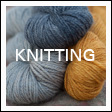
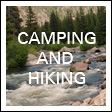
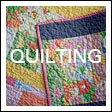
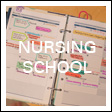





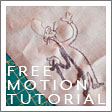







Speattle - It is good to see you back! Congratulations on your R.N. and BSN!
What kind of work are you doing now? My BSN came from University of WA in 1978, and all together it took me 5 years to complete. The R.N. officially came a few months later after I passed by state boards (1978 version of NCLEX0, and I worked for years in bone marrow transplant.
I loved reading your latest posts on the skirt and hat and party. 4 of my 6 grandkids are granddaughters and they all love it when I sew skirts and dresses for them.
Katelyn S - I also took my first pre-req in the summer of 2011! I had two more kids, and just finished my ASN last month. I thought I had the rest of my academic plan all mapped out, but my mom sent me this post and you’ve got my wheels turning. Online learning is my jam, so this seems like a completely viable option for me!
Teri - Hello! I am scheduled to start the RN to MSN Leadership and management program July 1. This blog has been so helpful! Thank you!
Traci - Thanks so much! I am interested in that course, so I would love to hear how it goes!!
Lori Ann Halterman - Hello! Thank you for a very concise evaluation of your time and course experiences. I have about 5 weeks or so left to my first term and all I have left is both community health courses, professional image, and organizational systems. Do you think it is possible to complete? I’ve arranged for daycare and I only work part-time, I’m very determined. I’m having a hard time finding other people’s experiences with these courses (recent experiences). Thank you in advance for any information.
Traci - You’ll possibly be cutting it close with community health, but if your mentor lets you, open the first community service now, complete that in a day or two and then start your community health hours. While you do that go into the professional image and org systems classes and have the work ready to upload for when you finish community health. You can write the paper for community health while you do your hours, too–don’t wait until your hours are fully completed before starting the paper. It’s doable but could be tight depending on your mentor and how quickly you’re able to get in hours–good luck!
Tara - Hello! I also started December 1st, 2017 and I did c820 on the weekends. I have 3 classes left. I got hung up in biochemistry or I would be done! So since I had to take one more term, I figured I would slow it down just a bit. Anyways, I am trying to finish up my field hours for c229 (version 5 YUCK). I should be done (FINGERS CROSSED) by end of July.
Danielle Joyce - I tried to post a message to you about your WGU experience, not sure why it didn’t post. Assuming you are still there?? It says that you completed 33 credits in 3 months (minus the 3 weeks you took off& the week early that you finished)? Not sure how that is possible unless you lived, ate and breathed WGU–doing nothing else. I’m confused.
Danielle
Traci - I’m sorry for the confusion! I think the key to understanding how there are so many ‘fast finishers’ is a little buried in this post, but it all boils down to it being competency based, so if you start with the graded tasks (versus working your way through the material as you would a traditional course) many courses can be completed in a single afternoon or evening. I was an English major in my first degree, which was handy, too, since I can write papers quickly. Some courses are more demanding on your time, and I definitely gave more time to the program during the two weeks I knocked out my fieldwork hours, but it wasn’t an eat/sleep/breathe endeadvor. Everyone is different, but I am definitely not the only student who worked full time, had a family, and had some free time too while knocking out the WGU course in a couple of months! While some may scoff at the idea of a program that is so quickly finished, I think the compentency based program is genius and cuts out all the time wasting BS involved in a traditional BSN! If you know the material from other experiences, why not just take the final cold and pass the class? 🙂
Stella - Thank you for such a great post! I am doing Biochem right now, and I was wondering where I can find the five prerecorded cohort videos you mentioned? Are they in the modules or somewhere else? I signed up for the bootcamp sessions and am not finding them very helpful. Thanks in advance 🙂
Traci - I’m sorry–I don’t remember exactly where they were but they were somewhere in the class content. Maybe ask a course mentor? I’m sorry I’m not more helpful!
Christian Martinez - I just wanted to say thank you for for this compilation of tips and tricks for the Rn to BSN program. I just graduated from WGU just shy of 3 months after starting! I used this guide as a pacesetter and found everything here to be extraordinarily useful. I seriously thought it was impossible to complete the program at the pace stated here, but you helped instill the motivation to do so. Thank you again!
Lorrie Coulson - Awesome post-I just spoke to another RN friend yesterday covering so many of these questions… ❤️Thank you!
Mary - This is my last course… yay! I notice you posted that the 5 interviews could be “any yahoo”, however, my instructions state the have to be “community professionals only”. It doesn’t specify anything about interviews in the rubric. I’m wondering if the instructions have changed since the C229 reorganization.
Katy - Hello,
Congrats on completing it so quickly. I have a similar goal. Did you read and do every assessment for the Professional Roles class or did you just click complete to say you did it?
Traci - That doesn’t ring a bell–I wonder if that is a new requirement? Unfortunately because I did power through these so quickly my memory of the details of each course at this point is pretty terrible!
Lisa - Traci..First Congrats and best of luck moving forward as well!!
Second, THANK YOU for providing a “map” of sorts. Thanks to posters like yourself and the awesome FB group I belong to it makes using your own “competency” and “passion for completing the program” so much lighter!